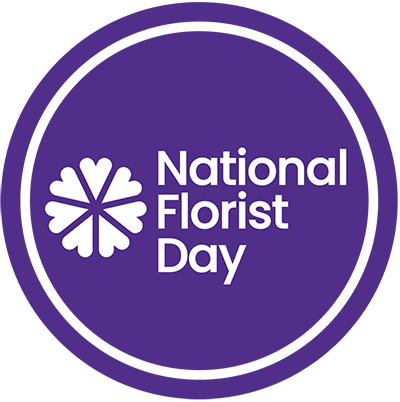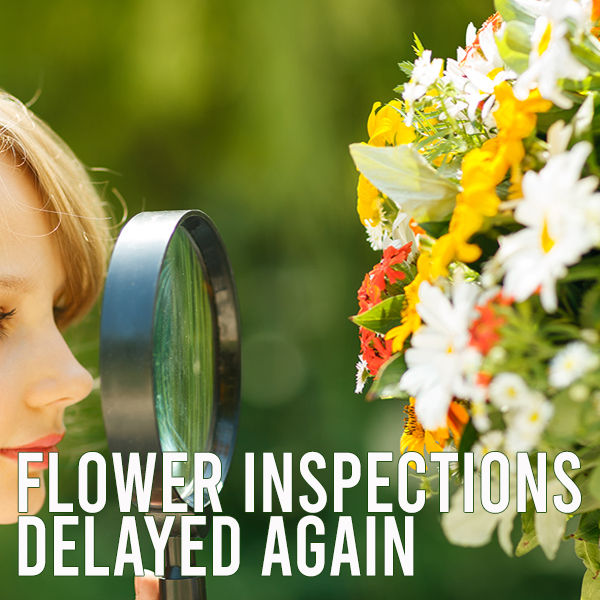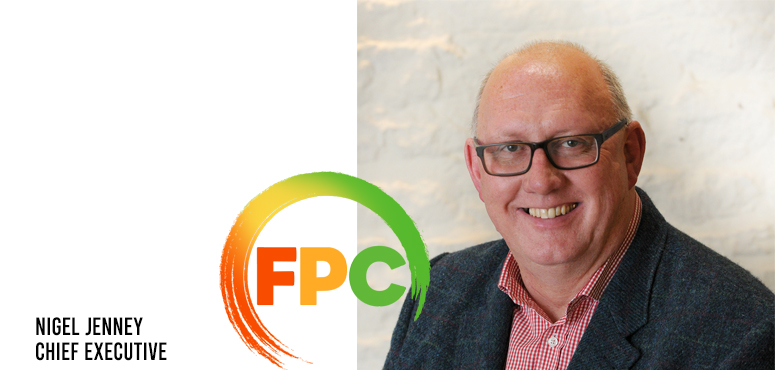



 Following intense pressure from key industry organisations the Government has announced that the system of certification and inspections for flowers will be delayed by a further seven months and the full impact of post Brexit systems will not affect flowers until July 2022.
Following intense pressure from key industry organisations the Government has announced that the system of certification and inspections for flowers will be delayed by a further seven months and the full impact of post Brexit systems will not affect flowers until July 2022.
In a concerted campaign, led by Nigel Jenney of Fresh Product Consortium, Government and DEFRA, the department responsible for the new processes, have conceded that they are simply not robust enough to make the moves as planned for October this year and which have already been delayed.
The move, which slips the timelines by a massive extra seven months, and for the flower industry avoids the three biggest peaks, has been met by universal relief although mass annoyance that yet again DEFRA have failed.
 Speaking on behalf of FPC, Nigel said “Whilst we welcome the delay, the ongoing uncertainty regarding the costs and service levels of the new UK Government imposed border controls remain a major issue. After many months our key concerns remain unanswered so I hope Gov uses this time wisely to fully develop the necessary processes that meet the needs of a modern JIT industry.
Speaking on behalf of FPC, Nigel said “Whilst we welcome the delay, the ongoing uncertainty regarding the costs and service levels of the new UK Government imposed border controls remain a major issue. After many months our key concerns remain unanswered so I hope Gov uses this time wisely to fully develop the necessary processes that meet the needs of a modern JIT industry.
The industry has considerable potential, but this will be undermined if their imposed solutions fail to meet the sector’s needs. Surely COVID has taught Government that it cannot take for granted the thousands of small businesses that feed and flower the nation.”
Whilst plants will continue to be processed under the new rules; a system that is finally beginning to be both understood and proving workable in a far better way than back in January, flowers will now follow a new timetable as shown below.
Key Information
Advice for Florists
For independent retail florists there will be little or no change other than following our advice way back in 2019 when we suggested that an extra 24/36 hours be built into the order process. Not just to avoid any possible delays due to paperwork but, in an ongoing squeezed market that shows no signs of easing, to ensure you get all the flowers you need, especially for weddings and events which are time critical.
You should also check that your supplier, especially if based outside the UK, has the correct paperwork systems, and import licences as otherwise YOU could be liable for charges. You must buy on a duty paid delivery basis. UK based wholesalers will have this in place.
In terms of storing Plant Passport information this should be included on your supplier’s invoice and you do not have to create a seperate record system. If your supplier is not including the information on the invoice you need to ask them to do it.
Advice for Importers, wholesalers, and other direct buyers
The PEACH system is no longer applicable, and you need to register for IPAFFS
If you are registered as a POD (place of destination) for plant inspections this will stay in place till July 2022 but will be replaced by dedicated warehouses unless you have applied to be an Inland Control Point … something that should be done as soon as possible.
Definitions
High Priority Plants – anything with roots
Low risk Plants and plant products – cut flowers and foliage
Revised timetable
As of now High Priority Plants are subject to the new rules and regulations
January 2022 Full customs declaration and control implemented which means no deferment possible unless you have permissions
January 2022 Pre-notification required for Low risk Plants and plant Products (cut flowers etc) coming in from EU - see below for 3rd Country rules
July 2022 Phytosanitary Certificates and physical checks applicable on Low risk Plants and plant Products (cut flowers etc) coming in from EU - see below for 3rd Country rules
3rd Country imports
Flowers coming into the UK directly from 3rd countries such as Colombia, Ecuador, Israel, Costa Rica etc will see no change to the procedures that applied before Brexit.
Flowers coming into the UK from 3rd Countries but sold via a Dutch company will be subject to an additional 8% tariff. You need to calculate if this makes a material difference and if yes find a UK based supplier who is taking direct delivery.



.
 |
 |
 |